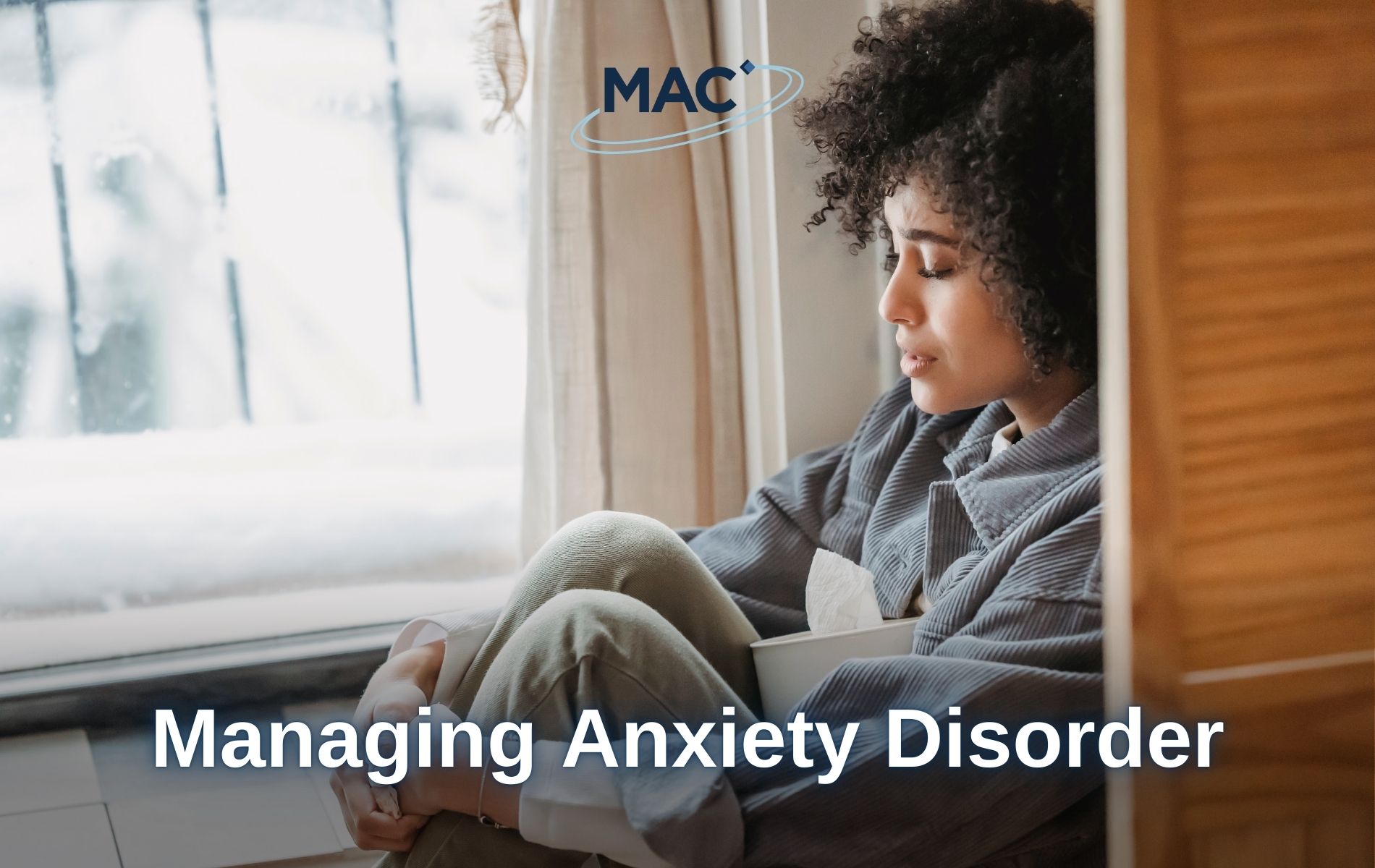Anxiety Disorder is a mental health condition characterised by persistent and excessive worry about various aspects of life, such as work, health, relationships, and finances.
Unlike typical anxiety that arises in response to specific stressors, anxiety involves a constant state of unease, making everyday life challenging. Mind UK estimate that every 6 in 100 people are living with anxiety1.
While anxiety can feel overwhelming, there are several strategies to manage it effectively and regain control over your mental wellbeing.
Understanding Anxiety
To manage anxiety, it’s crucial to understand what it entails. People with anxiety often experience symptoms such as restlessness, fatigue, irritability, difficulty concentrating, muscle tension, and sleep disturbances. In fact, as many as 36% of people living with anxiety also experience insomnia2.
These symptoms can be exhausting and can interfere with the individual’s ability to function normally. Recognising that these symptoms are part of a disorder, rather than a personal failing, is an important step toward effective management.
Developing Healthy Coping Mechanisms
Lifestyle changes play a significant role in managing anxiety. Incorporating healthy coping mechanisms can reduce the intensity of anxiety and improve your overall well-being. For instance:
- Mindfulness and Meditation: Mindfulness practices can help you stay grounded in the present moment, reducing the tendency to ruminate on future worries. Meditation, even for just a few minutes a day, can help calm the mind and body. According to one survey, anxiety was one of the top reasons for taking up meditation3.
- Exercise: Regular physical activity is a natural anxiety reliever. Exercise releases endorphins, which can improve your mood and reduce stress. Those who incorporate exercise into their daily routine were found to have a 60% lower risk of developing anxiety disorders compared to those who do not lead an active lifestyle4. Activities like yoga, walking, and swimming are particularly effective for calming the mind.
- Healthy Diet: What you eat can also impact how you feel. A balanced diet which reduces consumption of excessive processed food supports brain function and can help stabilise your mood. Reducing caffeine and sugar intake can also help lessen anxiety symptoms.
Building a Support Network
Having a support network of family, friends, or support groups is essential in managing anxiety. Talking about your experiences with trusted individuals can help alleviate the sense of isolation that often accompanies anxiety. Sometimes, simply sharing your worries can reduce their influence. Sadly, according to research, around 60% of people experiencing chronic loneliness experience mental distress, such as conditions like anxiety disorder5.
Additionally, joining support groups, whether in-person or online, can establish connections with others who share your experience. Hearing how others manage their anxiety can provide new ideas and inspiration for managing symptoms, such as reframing how you address your anxieties and practicing gradual exposure to help confront any fears
Seeking Professional Help
One of the most effective ways to manage anxiety is through professional support. Cognitive Behavioural Therapy (CBT) is one of the main ways of treating anxiety. CBT helps to identify and challenge negative thought patterns and replace them with more balanced, realistic perspectives.
In addition to therapy, medication, such as selective serotonin reuptake inhibitors (SSRIs) – also known as antidepressants, may be prescribed which may help regulate brain chemistry and alleviate symptoms. However, around half of people living with anxiety who are prescribed SSRIs won’t receive any benefit from this treatment6. Therefore, it is crucial that more treatments are developed to better address the symptoms associated with anxiety.
Here at MAC we are looking for people who would like to take part in clinical trials researching potential new treatments for anxiety. You may be compensated up to £2,500 for your time and commitment plus reasonable travel expenses will be reimbursed or transport provided.
For more information, visit MAC’s Anxiety Research webpage.
1 Mind UK – Mental health facts and statistics
2 Dialogues in Clinical Neuroscience – Sleep and anxiety disorders
3 Scientific Reports – Prevalence, patterns, and predictors of meditation use among US adults: A nationally representative survey
4 Psychiatry – Physical Activity Is Associated With Lower Long-Term Incidence of Anxiety in a Population-Based, Large-Scale Study
5 Campaign to End Loneliness – Facts and statistics about loneliness
6 The Mental Health Clinician – Management of treatment-resistant generalized anxiety disorder




